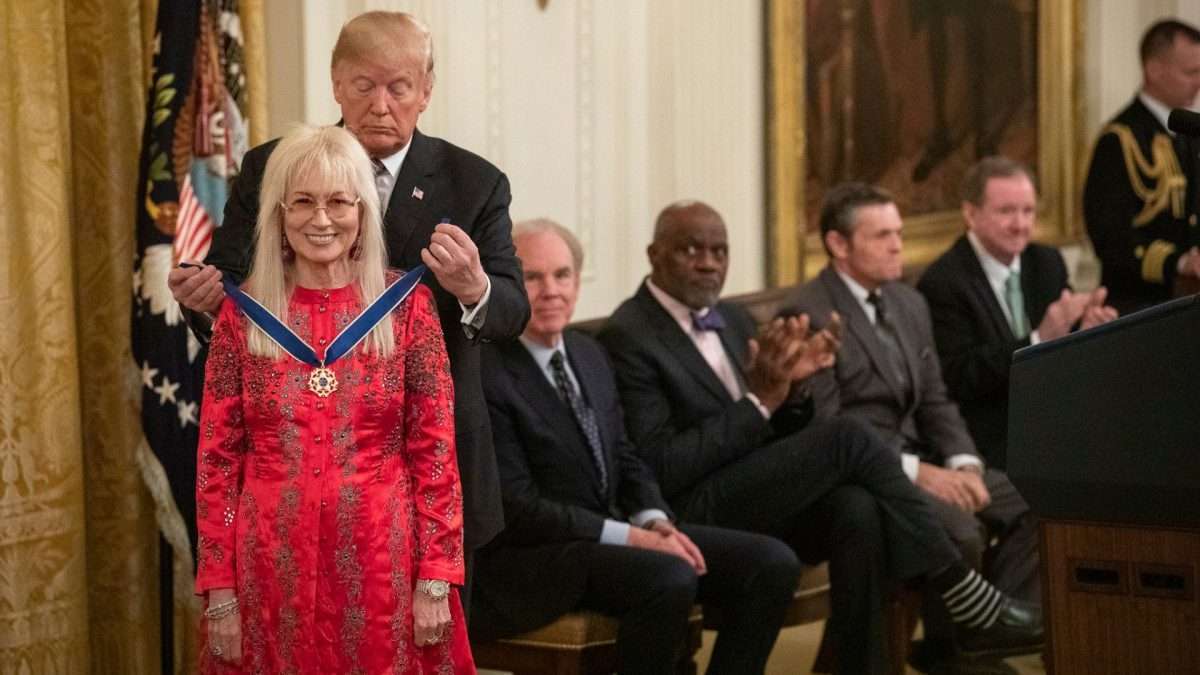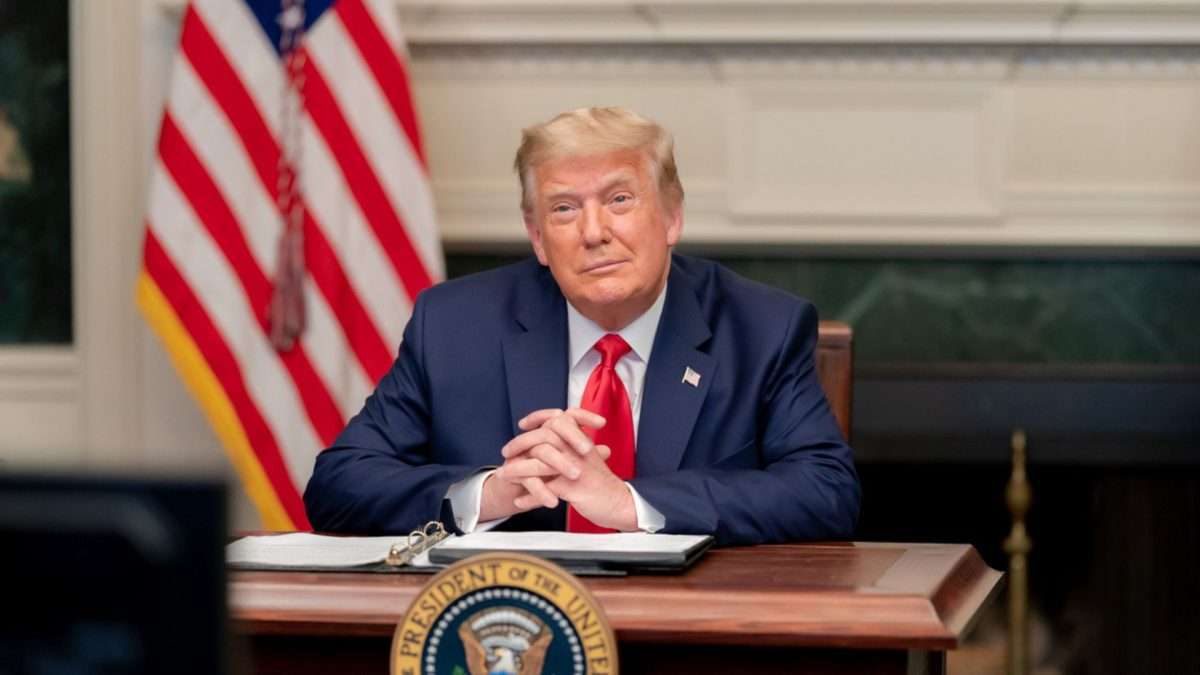Former President Donald Trump has received endorsements in recent days from communities he’s longed maligned: Arab and Muslim Americans. This surprising shift is primarily — but not exclusively — driven by the Biden administration’s support for Israel’s brutal war in Gaza, which has taken the lives of tens of thousands of civilians.
The votes, or non-votes, from these communities could determine outcomes in battleground states like Michigan, Pennsylvania, and Georgia.
Yet Arab and Muslim Americans are not monolithic voting blocs. Both the Harris and Trump campaigns recognize their complexity and are deploying strategies to target segments within these diverse communities.
How it’ll all play out on election day remains unclear, adding further unpredictability to a presidential race that remains a dead heat in its final stretch.
Arabs and Muslims for Trump
On Thursday, the Pakistani American Political Action Committee (PAKPAC) announced its support for the Republican nominee, stating that while it does not agree with Trump on every issue, it believes he’s the best candidate to secure the release of political prisoners in Pakistan and “reverse the country’s democratic backsliding.”
PAKPAC is banking on a Trump win because the Biden administration has been silent on and in many ways complicit in the deepening of military rule in Pakistan. The group hopes that given the good rapport between Trump and the imprisoned former Pakistani Prime Minister Imran Khan, a Republican administration would press for the Pakistani leader’s release. (The parallels between Trump and Khan, both of whom survived assassination attempts, are uncanny.)

Trump has also gained the endorsement of some Syrian Americans who would like to see the U.S. get tougher on Iran. Many see Democratic administrations as too inclined to bargain with Tehran, which has backed the Syrian regime in its suppression of a popular revolt, including through gassing and indiscriminate bombings. Hundreds of thousands of civilians have been killed in the Syrian Civil War.
Other segments of the Arab and Muslim community support Trump because they perceive him to be anti-war. Amer Ghalib, the mayor of the Muslim-majority city of Hamtramck, Michigan has endorsed Trump, describing him as “a man of principles.” Trump claims Ghalib backed him because he would prevent the outbreak of World War Three.
The shift toward Trump among Arab Americans — a community Biden won handily in 2020 — has been demonstrable. A September poll by the Arab American Institute shows Harris and Trump virtually tied among Arab Americans nationally.
A Vote Against Biden
For many Arab and Muslim Americans, the 2024 presidential elections call for a protest vote. Their endorsement of Trump is less about who he is and more about who he is not.
Angered by the Biden-Harris administration’s support for Israel and lacking faith that the vice president would pursue a different course from her predecessor, many seek to punish the Democrats by voting for Trump, despite his use of the word “Palestinian” as a slur and being bankrolled by supporters of Israel’s far-right, including mega-donor Miriam Adelson.

Trump has also vowed to reinstate the so-called Muslim ban, including refugee resettlement from Gaza, a region he described as “infested” at an event with Adelson, who wants U.S. recognition of an Israeli annexation of the West Bank.
With Trump’s anti-Muslim record in mind, others are choosing to support the third-party candidacy of Jill Stein, whose running mate, Butch Ware, is a Muslim. Yet for many Syrian Americans and others, supporting Stein is a non-starter given her past support for the al-Asad regime in Syria and allegations of being a “Russian asset.”
Faced with what they see are nothing but bad options, some groups, including the Arab American PAC, are choosing to sit this presidential election out. The organization traditionally supports Democrats, but has not endorsed a presidential candidate this year — the first time in its over two decades of existence.
Microtargeting Arabs and Muslims
Discussion of the Arab and Muslim vote tends to ignore one major reality: there is no singular Arab or Muslim voting bloc in the United States. Not all Muslims are Arabs. And not all Arabs are Muslims.
Most Arabs in the U.S., in fact, are Christian. Among Arab and non-Arab Muslims, there are Sunnis and Shias. They hail from dozens of countries of origin and are of varying levels of religiosity. Some are new Americans, while others are rooted many generations deep into this country. A plurality of Muslims in the U.S. are black Americans — descendants of enslaved Africans. The diversity also extends to other demographic factors, such as income levels.
The Harris and Trump campaigns recognize these internal schisms and they’re targeting microconstituencies in states like Michigan and Pennsylvania that could be decided by less than a percentage point. (Biden won Georgia by just over 10,000 votes in 2020.)
The Trump campaign has quietly enlisted a number of surrogates, including the former president’s Lebanese American son-in-law Massad Boulos and former ambassador to Germany Richard Grenell, for outreach to Arabs keen on a tougher Iran policy. The Trump campaign has also dispatched Trump lawyer Alina Habba to meet with the Iraqi American Chaldean Christians — a community of which she is a part. Many supported Trump in 2016 and 2020, in part because he was seen as tougher on ISIS. The terror group severely persecuted Chaldeans and other Christians.
The Harris campaign has largely kept American Muslims at an arm’s length, focusing instead on subgroups perceived to be more loyal.
Earlier this month, twenty-five Muslim community leaders, mainly from the black American community, offered a measured endorsement of Harris, stating that the benefits of her presidency outweigh the harms.
Just days earlier, another group of community leaders representing a broader segment of the American Muslim community called on Muslims to vote for a third-party candidate instead of Harris or Trump.
(Muslims for Harris-Walz, an independent affinity group, disputed the characterization of Harris as maintaining a distance from the Muslim community.
In a statement, the group said, “From uplifting the voices of Muslim Americans in this campaign, to hearing directly from families who have lost loved ones in Gaza, Vice President Harris and Governor Walz have made supporting Muslim American communities a top priority.”)
Elon Musk’s Cynical Game
Faced with no good options, many Muslims may simply not vote for any candidate. That may be what the Trump campaign and Elon Musk are banking on.
The pro-Trump, Musk-funded Future Coalition PAC has rolled out an advertising campaign targeting Arabs in Michigan and Jews in Pennsylvania with opposite messages. Ads targeting Arab Americans portray Harris and her Jewish husband Doug Emhoff as “America’s pro-Israel power couple,” while Jewish Americans are told that Harris is sympathetic to “anti-Semitic” campus protestors.
As the 2024 race goes down to the wire, the Trump campaign clearly recognizes that every vote and non-vote will be decisive.
Learn more about the Arab Americans of Dearborn and the metro Detroit area on my podcast with Professor Sally Howell:
This article has been updated with comments from the Muslims for Harris-Walz affinity group.
Arif Rafiq is the editor of Globely News. Rafiq has contributed commentary and analysis on global issues for publications such as Foreign Affairs, Foreign Policy, the New Republic, the New York Times, and POLITICO Magazine.
He has appeared on numerous broadcast outlets, including Al Jazeera English, the BBC World Service, CNN International, and National Public Radio.



